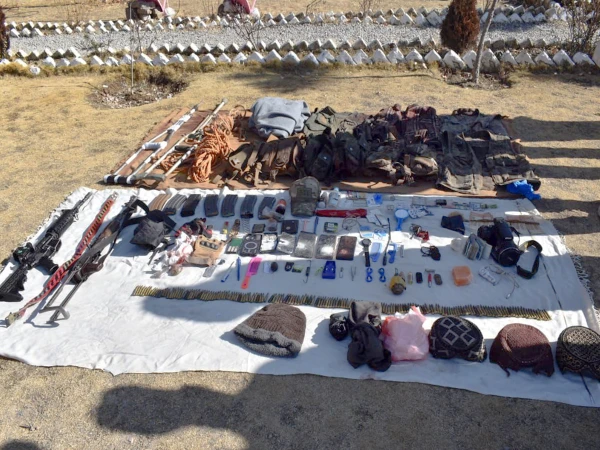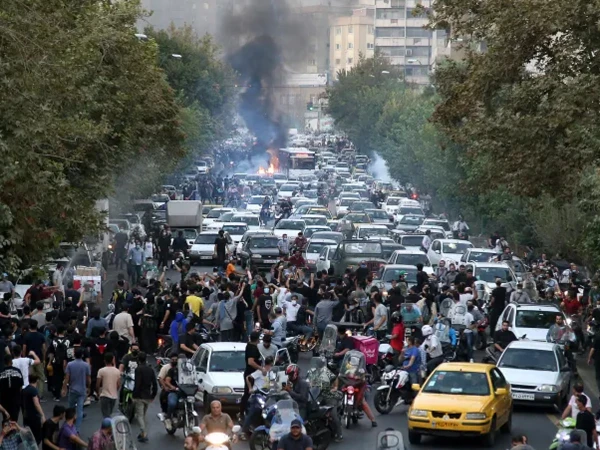MURTAZA KHAN:
Introduction
In today’s interconnected world, regional stability is no longer determined solely by military strength or traditional warfare. Nontraditional security threatssuch as climate change, pandemics, cyberattacks, transnational terrorism, and resource scarcityare rapidly becoming the dominant sources of instability across regions. Unlike conventional threats, these challenges are complex, borderless, and often ignored until their consequences are deeply felt. This article explores how nontraditional threats impact regional stability and why governments and international bodies must prioritize them in security agendas.
Understanding Nontraditional Security Threats
Nontraditional security threats refer to dangers that do not originate from direct military action but still pose significant risks to national and regional peace. These threats typically involve:
- Climate Change and Natural Disasters
- Pandemics and Health Crises
- Cybersecurity Breaches
- Transnational Terrorism and Organized Crime
- Migration and Refugee Crises
- Water, Energy, and Food Insecurity
These challenges disrupt normal governance, strain economic systems, increase political tensions, and, in many cases, lead to humanitarian disasters.
Climate Change and Environmental Degradation
Climate change is arguably the most pervasive nontraditional threat affecting regional stability. Rising sea levels, extreme weather events, droughts, and resource depletion have created competition for scarce resources. In regions like sub-Saharan Africa and South Asia, climate-induced water shortages have escalated cross-border tensions and displaced millions, increasing the burden on already fragile states.
For example, melting glaciers in the Himalayas affect water flows in major rivers like the Ganges and Brahmaputra, raising fears of water conflict between India, China, and Bangladesh.
Pandemics and Public Health Emergencies
COVID-19 illustrated how pandemics can paralyze entire regions. Public health crises not only overburden healthcare systems but also cause economic disruption, social unrest, and political instability. In regions with weak governance or limited medical infrastructure, pandemics can collapse public trust and invite external interference, threatening long-term peace and cooperation.
Moreover, unequal access to vaccines and healthcare deepens geopolitical divides and fosters resentment between countries, further destabilizing regional partnerships.
Cybersecurity and Digital Warfare
Cyberattacks on critical infrastructure, elections, and financial systems have become common tactics in modern conflict. Non-state actors and hostile nations exploit digital vulnerabilities to spread misinformation, steal data, and undermine trust in institutions.
In regions with tense relationssuch as Eastern Europe or the Middle Eastcyber threats amplify distrust and can even provoke physical conflict. Cyber insecurity makes it harder for regional alliances to function effectively and creates a constant state of unpredictability.
Transnational Terrorism and Organized Crime
Non-state actors operating across borders such as terrorist groups and drug cartelsdestabilize entire regions by exploiting weak states, fueling corruption, and promoting violence. Terrorist networks like ISIS, Boko Haram, and Al-Qaeda have turned local grievances into global threats.
Their presence often forces governments to divert resources from development to defense, weakens democratic institutions, and disrupts regional cooperation. In some cases, terrorist activities lead to military interventions by foreign powers, further complicating regional dynamics.
Migration, Refugees, and Human Displacement
Conflicts, persecution, environmental collapse, and economic hardship push millions to flee their homelands. Sudden influxes of refugees can strain neighboring countries’ economies and services, increasing domestic resentment and political instability.
For instance, the Syrian refugee crisis had ripple effects across Europe, altering political landscapes and fueling nationalism. Similarly, Rohingya refugees fleeing Myanmar have strained resources and peace in Bangladesh, leading to regional diplomatic tensions.
Resource Scarcity and Economic Security
Water, food, and energy are increasingly viewed as strategic resources. Competition over access to them can trigger unrest and violence. Dwindling oil reserves, contested river basins, and food shortages due to climate shifts are common in many parts of Africa, the Middle East, and Asia.
Without cooperation and shared governance mechanisms, these pressures can spiral into inter-state conflicts or internal rebellions, undermining regional stability.
Consequences for Regional Cooperation
Nontraditional threats often demand collective action, yet their borderless nature challenges existing regional cooperation frameworks. Many regions lack institutional capacity or political will to jointly address these issues. Trust deficits, uneven development, and geopolitical rivalries hinder coordinated responses.
This fragmentation results in missed opportunities for early warning systems, joint task forces, or shared disaster response mechanisms. As a result, instability festers and spreads, making future threats even harder to manage.
Rethinking Security Frameworks
Addressing nontraditional threats requires a shift in mindset and policy. National security must be broadened to include human security, environmental sustainability, and economic resilience. Regional organizations such as ASEAN, the African Union, and the European Union must invest in joint monitoring systems, crisis response units, and information-sharing platforms.
Moreover, integrating civil society, the private sector, and local communities into planning processes can improve preparedness and trust across borders.
Conclusion
Nontraditional security threats are reshaping the global and regional order. These challengesthough often invisible until crisis strikescarry profound implications for peace, prosperity, and cooperation. Failing to address them not only weakens individual states but also destabilizes entire regions.
A secure future lies in recognizing that pandemics, climate change, cyber threats, and mass migrations are not just humanitarian or environmental issuesthey are central to regional security. To safeguard stability, the world must act collectively, innovate policy frameworks, and prioritize resilience over reaction.







